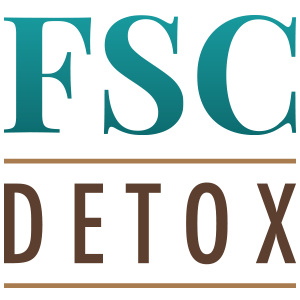How Journaling Can Help You Maintain Sobriety
Journaling: A Powerful Tool for Healing and Recovery
The writing process is a natural form of self-reflection with therapeutic benefits, and journaling can help process the emotional challenges that come along with the recovery process. Because journaling requires only yourself and a commitment to the practice, it is a low-pressure communication tool that allows you to dig deep and learn about yourself, your life, and the path you have chosen in recovery.
The practice of journaling is cathartic way to express your emotions and manage mental health issues affected by addiction such as anxiety, stress, and depression, as well as understanding the root of the addiction itself. This healthy form of mental health management should be an accessible tool in your recovery toolbox that you can use to maintain longevity in your sobriety. In fact, even before making that life-changing decision to pursue detox and addiction rehabilitation, keeping a journal can help process and reconcile with the need to seek treatment.
Contact the Orange County detox and rehab specialists at Fresh Start of California for addiction recovery options and where to start. Call our team today.
The Benefits of Keeping a Recovery Journal
Studies have shown that writing in a journal actually trigger positive physiological responses in your mind and body. By simultaneously enacting the rational left side and creative right side of your brain, you are able to freely express yourself without verbal or communicative restraints. Writing in this mindset also improves cognitive function and ability, and strengthens your personal relationship with yourself, empowering your emotions and bolstering your natural coping mechanisms.
Breaking down the many benefits of journaling for recovery can also help boost your confidence and keep you on track. These specific benefits include:
- Self-reflection and self-actualization: The reflective moments that you allow yourself with your journal allow you to look inward and understand your emotions, encouraging you to reflect and grow. By being in touch with yourself, you will strengthen your emotional intelligence, and learn how to act with integrity while cultivating self-confidence.
- Naming problems and responsibilities: Self-reflection requires honesty, and honesty is necessary during the recovery process. Journaling compels these honest conversations with yourself so you can recognize your triggers, responsibilities, the root of your addiction, and how to overcome these issues to maintain sobriety long term.
- Preserve your privacy: It is difficult to be honest with yourself when that information is shared. With journaling, you are having a conversation between you and yourself—no one else needs to read it. You are free to get it all out on the page without judgement.
- Setting goals and tracking progress: One of the most valuable benefits of journaling is creating a written record of progress and goal-achievements. It is inspiring to look back on previous journal entries and see how much you’ve grown emotionally and how far you’ve journeyed through recovery. This helps maintain progress and keep momentum, especially during periods of self-doubt and when facing external challenges.
Writing in a journal is habitual act that takes commitment and dedication—even a few words a day will help you maintain a helpful, therapeutic practice. By processing and unpacking your emotions through daily journaling, you harvest a growth mindset while stimulating self-accountability that keeps you on track in your recovery process.
How to Start Journaling for Recovery
One of the most beneficial elements of journaling is how accessible it is. You simply need a pen, a notebook, and a sliver of time for yourself. Writing prompts can sometimes help you break the ice and write with certain topics in mind; other writers prefer to record and reflect the day’s events. Journaling while in therapy or rehabilitation programs usually combine approaches to allow both guidance and freedom.
Everyone’s writing and journaling process works differently for them, and you should allow yourself to shed any pressure you may feel about getting started. Remember—it’s just you, and the blank page in front of you.
There are several types of journaling, and each can be accessible and adaptable to your style and preference:
- A Traditional Diary: You record your day’s events, as well as your emotional responses and overall wellbeing.
- A Reflection Journal: Usually written in the evenings, you aim for deep self-reflection on specific topics that may have come up throughout your day’s occurrences.
- A Gratitude Journal: Focusing on the positive, you write about things you are grateful for, whether or not they are connected to the day’s events.
- Goals and Progress Journal: This can be interwoven in other types of journals and allows you to write down specific goals and track progress towards those goals, while also maintaining accountability.
- Prompt-based Journal: Prompts can be facilitated by rehabilitation leaders, therapists, or you can purchase a journal with prompts already written. Prompts help you start writing, but it is not a writing assignment. Once you start writing, you freely your mind and pen lead you into self-reflection.
No matter where you are in your journey, maintaining sobriety requires you to confront, process, and overcome the many challenges of addiction recovery. Through the practice of journaling, you can healthily reduce the emotional stress that may be inhibiting your recovery process, while bringing creativity and joy into your life through writing.
Need help getting started? Contact Fresh Start of California in Orange County today.





